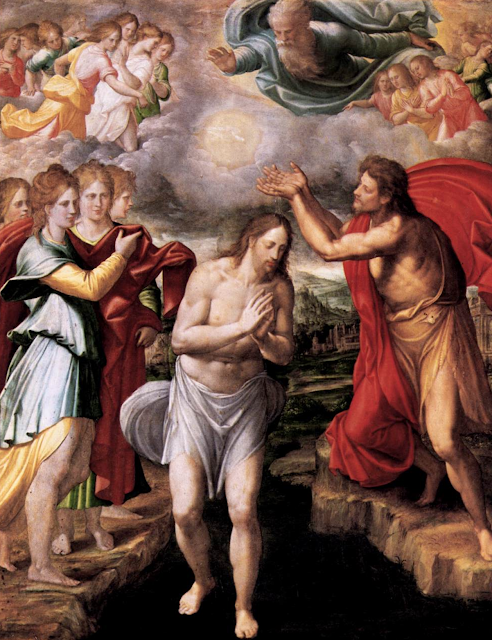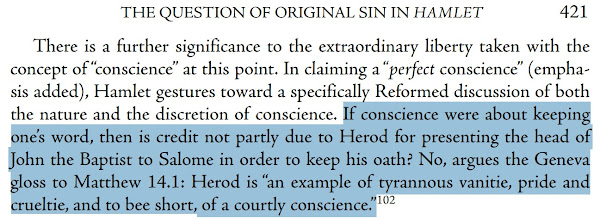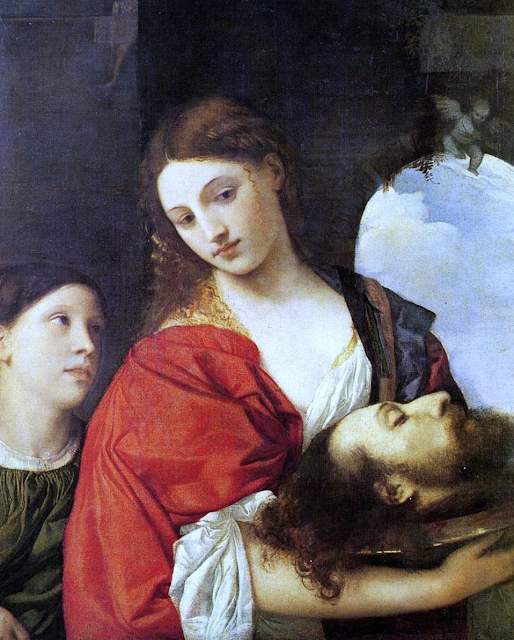HAMLET PRAYER SCENE: IRONIC & CLASHING BIBLICAL ECHOES

Claudius at prayer (3.3) echoes (and parodies) Jesus’ agony in the garden, praying that “this cup” pass from him. —But Jesus ends with “thy will be done.” —The echo is ironic for Claudius: He knows what he must do to repent, but refuses to give up the throne and queen he acquired by killing his brother. —Unlike Jesus, Claudius ends, *My* will be done, not God’s. Hamlet has a chance to kill Claudius in this scene, but spares him. —This echoes the biblical David who twice spared King Saul (1 Sam 24 & 26). —Yet the echo is ironic: Whereas David spared Saul out of mercy and respect for the king as God’s anointed, Hamlet intends to catch Claudius later and kill him when he’s doing something unholy, thereby damning him. As others have noted, Hamlet here wants to play God. —Ålso ironic: Hamlet misinterprets Claudius’ effort to pray. Like the play in general, this scene reminds us that looks can be deceiving: a king at prayer and a prince sparing a life may both be prisoners of ...



